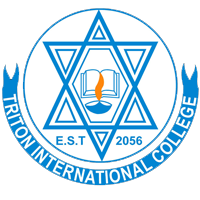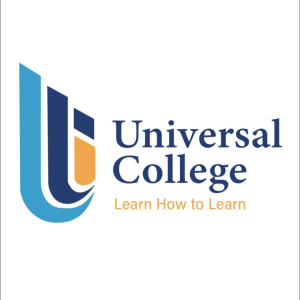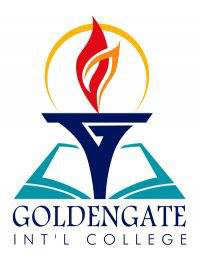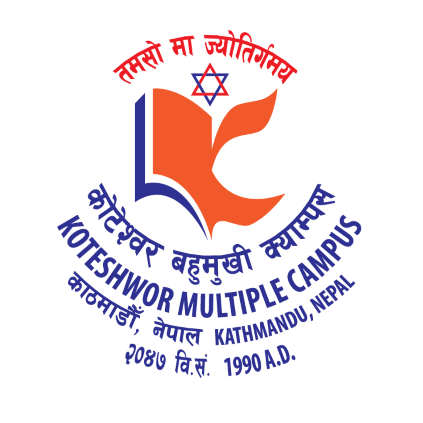Overview
Bachelor of Arts (BA) at Tri-Chandra Campus, Ghantaghar, Kathmandu (affiliated with TU)
The Bachelor of Arts (BA) program at Tri-Chandra Campus, affiliated with Tribhuvan University (TU), is a multidisciplinary undergraduate degree designed to provide students with an in-depth foundation in the humanities, social sciences, and liberal arts. This program is ideal for students interested in exploring diverse disciplines while developing critical thinking, analytical, and communication skills.
Program Duration
The BA program spans four years. Each year includes a balanced combination of core and elective courses, fostering depth and breadth in academic exploration.
Eligibility Criteria
To enroll in the BA program at Tri-Chandra Campus, candidates must meet the following criteria:
-
Completion of 10+2 or equivalent education in any discipline from a recognized board or institution.
-
Obtain a minimum CGPA of 2.0 or second division in the qualifying examination.
-
Meeting any additional criteria set by Tribhuvan University.
Admission Process
-
Application Submission: Submit the application form online at the campus admission office.
-
Document Submission: Provide required documents, including academic transcripts and proof of identity.
-
Merit-Based Selection: Admission is granted based on academic records and the fulfillment of eligibility criteria.
-
Enrollment: Confirm admission by paying the required fees and completing the registration process.
Course Outline
The BA curriculum offers a combination of core subjects, elective courses, and practical applications. Below is a sample semester-wise breakdown:
Year 1:
-
English Literature I
-
Sociology Fundamentals
-
Political Science Basics
-
Elective I: History or Geography
-
English Literature II
-
Introduction to Economics
-
Psychology Basics
-
Elective II: Philosophy or Anthropology
Year 2:
-
Advanced Writing Skills
-
Research Methodology
-
Elective III: Rural Development or International Relations
-
Practical: Fieldwork or Case Studies
-
Media and Communication Studies
-
Gender Studies
-
Regional Studies
-
Elective IV: Tourism or Environmental Studies
Year 3:
-
Public Administration
-
Developmental Psychology
-
Elective V: Conflict Studies or Cultural Studies
-
Internship Preparation
-
Comparative Politics
-
Ethics and Governance
-
Elective VI: Human Rights or Urban Studies
-
Practical: Project Presentation
Year 4:
-
Dissertation Proposal Writing
-
Advanced Sociology
-
Specialized Elective: Any Focus Area
-
Practical: Seminar Presentation
-
Dissertation/Research Project
-
Advanced Topics in Chosen Discipline
-
Internship/Fieldwork
-
Comprehensive Exam Preparation
Subjects Offered
-
English Literature
-
Sociology
-
Political Science
-
Psychology
-
Economics
-
History
-
Geography
-
Anthropology
-
Philosophy
-
Media and Communication Studies
-
Gender Studies
-
Rural Development
-
Environmental Studies
-
Human Rights
-
Urban Studies
Program Objectives
-
To develop interdisciplinary knowledge and skills applicable across various domains.
-
To enhance critical thinking, analytical abilities, and problem-solving skills.
-
To prepare students for academic careers, public administration, media, and more.
-
To foster ethical reasoning and cultural awareness.
-
To enable students to contribute to societal development and global understanding.
Teaching Methodology
The program adopts an interactive teaching methodology that includes lectures, group discussions, case studies, and research projects. Students benefit from expert faculty guidance, guest lectures, and practical workshops. Modern teaching aids and technology integration enhance learning experiences.
Learning Outcomes
Graduates of the BA program will:
-
Acquire broad knowledge across humanities and social sciences disciplines.
-
Develop critical thinking and practical communication skills.
-
Conduct independent research and apply interdisciplinary approaches to problem-solving.
-
Demonstrate cultural awareness and ethical reasoning.
-
Pursue careers or further studies in diverse fields.
Future Scope
The BA program prepares students for postgraduate studies in Sociology, Political Science, Economics, or International Relations. Graduates can also specialize in journalism, development studies, or cultural heritage management.
Career Prospects
Graduates can explore careers in:
-
Public Administration
-
Media and Journalism
-
Non-Governmental Organizations (NGOs)
-
Teaching and Academia
-
Research and Policy Analysis
-
Tourism and Cultural Management
-
International Organizations
Scholarship Opportunities
Tri-Chandra Campus offers scholarships for academically outstanding and financially disadvantaged students. Scholarships are also available for students from marginalized communities. For details, visit the campus administration office.
Fee Structure
Tribhuvan University determines the tuition fees for the BA program, which are subject to periodic revisions. A detailed fee structure is available at the campus administration office.
Extracurricular and Co-Curricular Activities
Students engage in debate competitions, cultural programs, and academic seminars. These activities foster leadership, teamwork, and practical application of knowledge while encouraging holistic development.
Real-World Application
The program emphasizes real-world applications through internships, fieldwork, and case studies. Students gain hands-on experience addressing societal issues and implementing theoretical knowledge in practical contexts.
Sustainability and Social Impact
The BA curriculum incorporates sustainability and social impact, encouraging students to use innovative solutions to overcome global challenges such as social inequality, climate change, and cultural preservation.
Skill Development
Students develop essential skills such as research methodology, analytical reasoning, and effective communication. The program also hones leadership, teamwork, and project management skills, preparing graduates for dynamic roles.
Global Perspective
Courses on international relations, global economics, and cultural studies equip students with a worldwide outlook and prepare them to effectively engage with global challenges and opportunities.
Facilities and Support
Tri-Chandra Campus provides modern classrooms, a well-equipped library, and access to online resources. Academic counseling, career guidance, and mentorship programs are available to support student success.
Why Choose a Bachelor of Arts (BA)?
The BA program offers a multidisciplinary approach to education, enabling students to explore diverse fields and develop versatile skills. Its emphasis on critical thinking and cultural understanding prepares graduates for impactful societal roles.
Is the Bachelor of Arts (BA) Right for You?
This BA program is ideal if you are passionate about humanities and social sciences and aim to contribute meaningfully to society. It provides a broad education that fosters intellectual growth and practical skills applicable across various careers.
What is the Future of the Bachelor of Arts (BA)?
With increasing demand for interdisciplinary knowledge, BA graduates are well-positioned for leadership roles in academia, public policy, and global organizations. The program equips students to address societal challenges and drive positive change.
How to Improve Your Study of BA Education
To excel in BA studies, actively participate in class discussions, conduct independent research, and engage with current events. Develop a critical reading and writing habit, and seek faculty mentorship. Collaborating with peers and participating in extracurricular activities can enhance your learning experience.
Conclusion
The Bachelor of Arts (BA) program at Tri-Chandra Campus (TC) offers a dynamic and versatile humanities and social sciences education. The program prepares students for meaningful careers and lifelong learning by combining rigorous academics with practical applications. Whether pursuing further studies or professional opportunities, graduates are ready to impact a rapidly changing world significantly.
Contact Tri Chandra Multiple Campus's administrative office for detailed information on the Bachelor of Arts (BA) course, including fees, scholarships, facilities, counseling, eligibility criteria, etc.



















